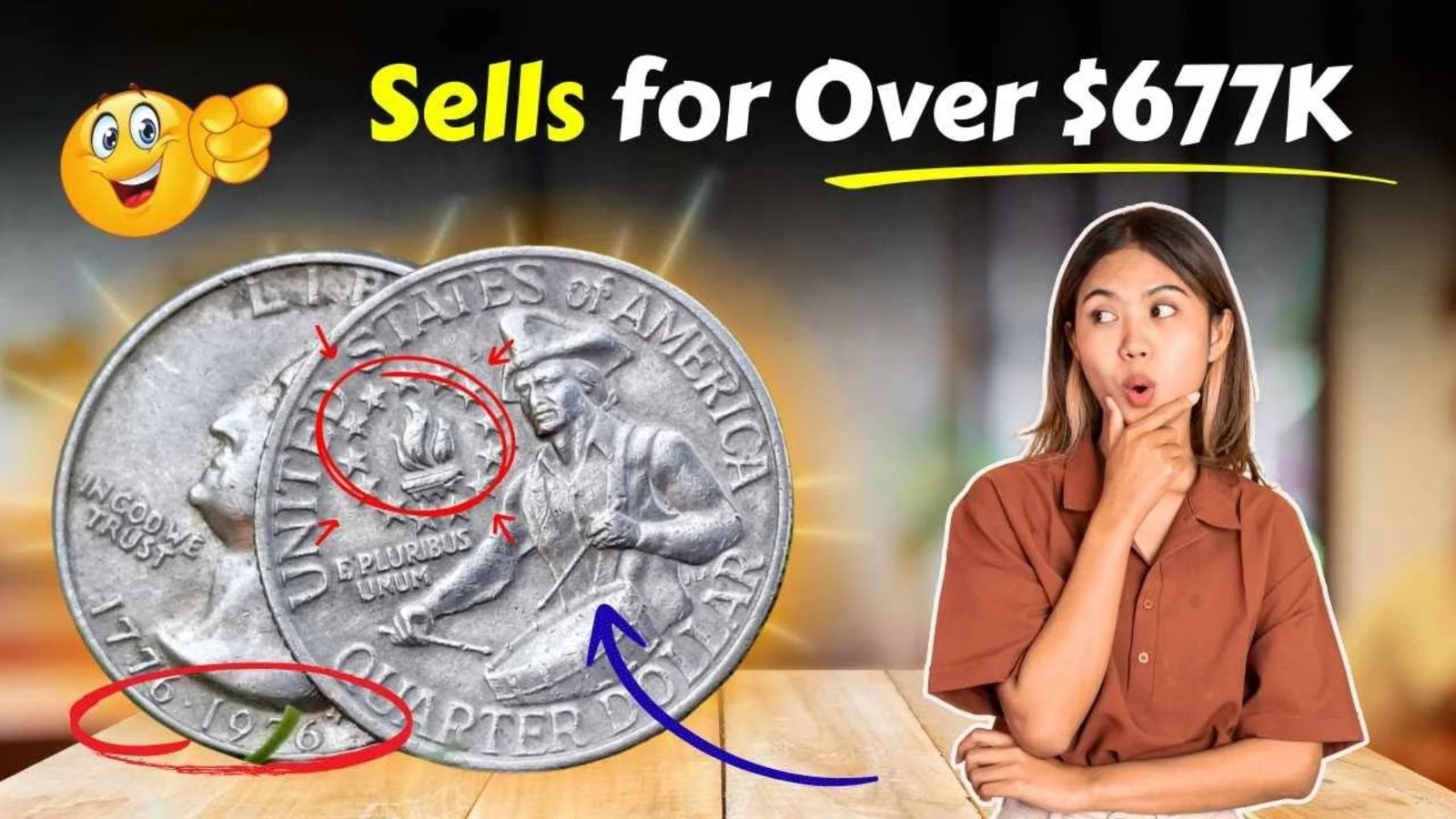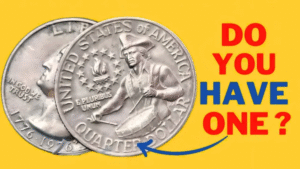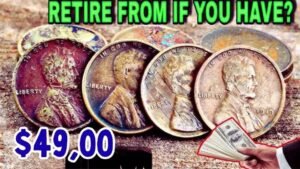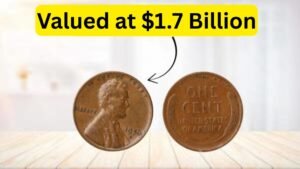The Bicentennial Quarter, minted in 1976 to celebrate America’s 200th birthday, is a coin many people might overlook. Most of these quarters are worth just 25 cents, but some rare versions can fetch life-changing sums, with one selling for over $677K!
we’ll break down why certain Bicentennial Quarters are so valuable, how to spot them, and what makes them a collector’s dream. Whether you’re a coin enthusiast or just curious, this article will help you understand the potential treasure hiding in your pocket change.
What Is a Bicentennial Quarter?
The Bicentennial Quarter was created by the U.S. Mint to mark the 200th anniversary of American independence. Released in 1976, these quarters feature a unique design: the obverse (front) shows the usual portrait of George Washington, while the reverse (back) displays a colonial drummer and a torch surrounded by 13 stars, symbolizing the original 13 colonies.
Most Bicentennial Quarters are common and worth their face value, but specific rare versions stand out due to errors, special minting, or unique conditions. Let’s explore what makes some of these coins so valuable.
Why Are Some Bicentennial Quarters Worth So Much?
Certain Bicentennial Quarters command high prices because of rare features, minting errors, or pristine condition. Here’s a breakdown of the factors that can turn an ordinary quarter into a collector’s jackpot:
1. Minting Errors
Minting errors occur when something goes wrong during the coin’s production, making it unique. For example:
- Double Die Errors: The design is stamped twice, slightly off-center, creating a doubled appearance. This makes the coin rare and valuable.
- Off-Center Strikes: The design is misaligned, with parts of the coin blank.
- Missing Mint Marks: Some quarters lack the mint mark (a small letter indicating where the coin was made), increasing their rarity.
2. Silver Composition
Most Bicentennial Quarters were made of copper-nickel, but some were struck in 40% silver for collectors. These silver quarters, especially in uncirculated condition, are worth more than their face value due to their precious metal content.
3. High-Grade Condition
Coins in near-perfect condition, graded by professional services like PCGS or NGC, can fetch top dollar. A Bicentennial Quarter graded MS-69 (near-perfect) sold for over $677K at auction due to its flawless state and rarity.
4. Rare Mint Marks
The mint mark, a small letter on the coin, shows where it was made:
- D: Denver Mint
- S: San Francisco Mint
- No mint mark: Philadelphia Mint
Quarters with the S mint mark, especially silver ones, are often more valuable because fewer were produced.
How to Identify a Valuable Bicentennial Quarter
To find out if your Bicentennial Quarter is worth a fortune, follow these steps:
Check the Date and Mint Mark
Look for the “1776-1976” date on the front and the mint mark near Washington’s portrait. Quarters with an S mint mark or no mint mark are more likely to be valuable.
Inspect for Errors
Examine the coin under good lighting or with a magnifying glass. Look for:
- Doubling in the lettering or design.
- Misaligned or off-center images.
- Missing or unusual mint marks.
Evaluate the Condition
A shiny, uncirculated coin is more likely to be valuable. Scratches, wear, or discoloration can lower its value. Professional grading services can assess the coin’s condition accurately.
Verify Silver Content
Silver Bicentennial Quarters were made for collectors and often come in special sets. Check the edge of the coin; silver quarters have a solid silver stripe, unlike the copper-nickel ones, which show a copper core.
Key Features of a Valuable Bicentennial Quarter
| Feature | Description | Why It’s Valuable |
|---|---|---|
| Double Die Error | Design appears doubled due to a minting mistake. | Rare and highly sought by collectors. |
| Silver Composition | Made of 40% silver instead of copper-nickel. | Precious metal increases value. |
| High Grade (MS-69) | Near-perfect condition, graded by PCGS or NGC. | Flawless coins fetch top prices at auctions. |
| S Mint Mark | Struck at the San Francisco Mint, often in silver. | Limited production makes them rare. |
| No Mint Mark | Struck at Philadelphia, some errors lack mint marks. | Unique errors increase collectible value. |
Where to Find These Rare Quarters
You might already have a valuable Bicentennial Quarter without knowing it! Here are some places to look:
- Pocket Change: Check your spare change or old coin jars.
- Bank Rolls: Buy rolls of quarters from banks and inspect them.
- Coin Shows or Dealers: Visit local coin shops or shows to find uncirculated or error coins.
- Inherited Collections: Old family coin collections might contain rare quarters.
How to Sell a Valuable Bicentennial Quarter
If you think you’ve found a rare Bicentennial Quarter, here’s how to cash in:
- Get It Appraised: Take the coin to a reputable coin dealer or grading service like PCGS or NGC.
- Auction It: High-value coins often sell best at auctions through platforms like Heritage Auctions or eBay.
- Sell to Collectors: Connect with coin collectors through online forums or local clubs.
- Verify Authenticity: Ensure the coin is genuine to avoid scams or fakes.
Tips to Avoid Scams
The coin market can be tricky, so protect yourself:
- Work with Reputable Dealers: Choose dealers certified by the American Numismatic Association (ANA).
- Avoid Overhyped Claims: Be wary of sellers claiming every Bicentennial Quarter is worth thousands.
- Get a Second Opinion: Have the coin graded by a trusted service before selling.
Why Collectors Love Bicentennial Quarters
The Bicentennial Quarter isn’t just about money—it’s a piece of American history. The unique drummer design and the celebration of 200 years of independence make it a favorite among collectors. Rare versions, especially those with errors or in pristine condition, are like finding a hidden gem in a sea of common coins.
Final Thoughts
The Bicentennial Quarter is a fascinating piece of history that could also be a ticket to wealth. By knowing what to look for—minting errors, silver content, mint marks, and condition—you can spot a coin worth far more than 25 cents. Check your change, old collections, or bank rolls, and you might discover a treasure worth over $677K! Start hunting today, and who knows? Your next quarter could make you rich.




